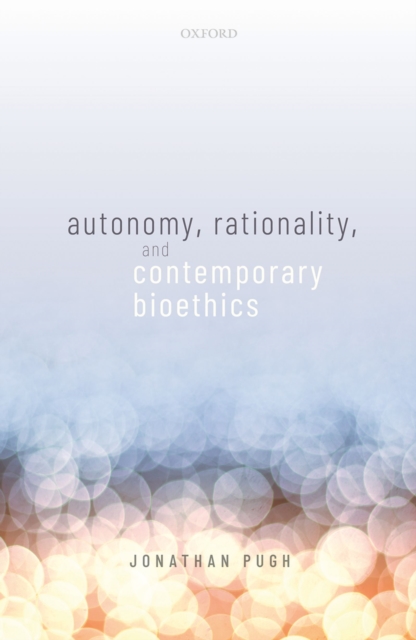
Autonomy, Rationality, and Contemporary Bioethics PDF
by Jonathan Pugh
Part of the Oxford Philosophical Monographs series
Description
This is an open access title available under the terms of a CC BY-NC-ND 4.0 International licence.
It is free to read at Oxford Scholarship Online and offered as a free PDF download from OUP and selected open access locations. Personal autonomy is often lauded as a key value in contemporary Western bioethics.
Though the claim that there is an important relationship between autonomy and rationality is often treated as uncontroversial in this sphere, there is also considerable disagreement about how we should cash out the relationship.
In particular, it is unclear whether a rationalist view of autonomy can be compatible with legal judgments that enshrine a patient's right to refuse medical treatment, regardless ofwhether the reasons underpinning the choice are known and rational, or indeed whether they even exist.
Jonathan Pugh brings recent philosophical work on the nature of rationality to bear on the question of how we should understand personal autonomy in contemporary bioethics.
In doing so, he develops anew framework for thinking about the concept of autonomy, one that is grounded in an understanding of the different roles that rational beliefs and rational desires have to play in it.
Pugh's account allows for a deeper understanding of d the relationship between our freedom to act and our capacity to decide autonomously.
His rationalist perspective is contrasted with other prominent accounts of autonomy in bioethics, and the revisionary implications it has for practical questions inbiomedicine are also outlined.
Information
-
Download - Immediately Available
- Format:PDF
- Pages:352 pages
- Publisher:OUP Oxford
- Publication Date:01/04/2020
- Category:
- ISBN:9780191899393
Other Formats
- EPUB from £55.41
Information
-
Download - Immediately Available
- Format:PDF
- Pages:352 pages
- Publisher:OUP Oxford
- Publication Date:01/04/2020
- Category:
- ISBN:9780191899393










